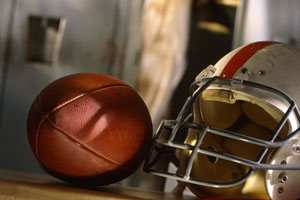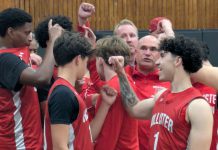An otherwise-obscure bowl kicking off on the eve of the BCS
championship game merits watching for one major reason. You may not
find a better unit vs. unit matchup this postseason than the
showdown between Nevada’s third-ranked rushing offense and Boston
College’s top-ranked run defense in Sunday’s Kraft Fight Hunger
Bowl at San Francisco’s AT
&
amp;T Park.
Kyte.Embed.path=”http://media.kyte.tv”;Kyte.Embed.altpath=”http://www.kyte.tv”;window.kyteplayer=new Kyte.Player(“”,{appKey:”default”,width:320,height:260,p:”s”,s:1127487,tbid:”21″});
SAN FRANCISCO
An otherwise-obscure bowl kicking off on the eve of the BCS championship game merits watching for one major reason.
You may not find a better unit vs. unit matchup this postseason than the showdown between Nevada’s third-ranked rushing offense and Boston College’s top-ranked run defense in Sunday’s Kraft Fight Hunger Bowl at San Francisco’s AT&T Park.
Nevada’s vaunted running game earned plenty of attention after the Wolf Pack’s 34-31 overtime victory over Boise State knocked the Broncos out of national title contention, but Boston College hasn’t garnered as much notice for its outstanding run defense.
The Eagles don’t seem to mind the lack of publicity. They aren’t bragging about what they’ve accomplished. In fact, they don’t even realize some of their greatest achievements.
For instance, BC hasn’t allowed an individual to rush for 100 yards since Virginia Tech’s Ryan Williams gained 159 yards on Oct. 10, 2009, but senior defensive tackle Damik Scafe reacted with surprise this week when he was asked about the streak.
“I actually didn’t know that,” Scafe said. “That’s great. That’s awesome. We take pride in stopping the run.”
BC has ranked among the nation’s top 26 teams in run defense and has allowed below 3 1/2 yards per carry in each of the past six seasons. This marks the fourth time in that span that the Eagles have ranked seventh or better in that category.
“Our defense is a very hard-nosed defense,” said sophomore linebacker Luke Kuechly, who leads the nation with 171 tackles. “We play every play hard and physical. We play a physical grade of football. That’s been the theme for the last couple of years.”
BC has allowed only eight individuals to rush for 100 yards since 2005, the lowest total of any FBS team. The Eagles have proved they can overcome all types of adversity and still deliver a standout run defense.
Last season, Boston College had to replace first-round draft pick B.J. Raji and second-round pick Ron Brace, who had formed one of the nation’s top defensive tackle tandems in 2008. They also played the whole season without 2008 ACC defensive player of the year Mark Herzlich, who was recovering from Ewing’s sarcoma, a rare form of cancer. And they were adjusting to new defensive coordinator Bill McGovern, who took over the position after Frank Spaziani was promoted to coach.
Amid all that uncertainty, the Eagles still allowed only 2.99 yards per carry while ranking 14th in the nation in run defense. They’re doing even better this season, as they’ve yielded only 2.66 yards per carry and 80.2 rushing yards per game.
“They’re a beast,” Duke coach David Cutcliffe told reporters after his team rushed for 4 net yards on 24 carries in a 21-16 loss to Boston College. “They’re really good and really physical. There’s a reason they’re ranked where they are. This is not a pretend thing with them.”
The Eagles once again have overcome plenty of obstacles. Scafe had shoulder surgery and back surgery in the offseason before returning to play. Senior free safety Wes Davis suffered a career-ending neck injury in a 24-21 loss to Maryland on Oct. 23. Senior defensive end Alex Albright broke his fibula in the same game and missed the rest of the regular season, though he’s expected to play against Nevada. Yet BC still found a way to stop the run better than any other team in the country.
BC needed to play this kind of defense to earn its 12th consecutive bowl bid. The Eagles rank 109th in scoring offense and haven’t exceeded 26 points against an FBS opponent. They’ve reached the 20-point mark just three times all season.
The lack of offensive firepower caused the Eagles to suffer through a five-game losing streak that dropped their record to 2-5 and put their postseason hopes in doubt. BC responded by ending the regular season on a five-game winning streak in which it allowed just three offensive touchdowns.
“We sat down and said, ‘This is do or die,'” Kuechly said. ” ‘This is the breaking point in the season. If we don’t win now, we’re not going to a bowl game.’
“We wanted to give Alex Albright another chance to play a game. The only way how was to play in a bowl game. A lot of guys took it upon ourselves.”
BC’s defensive line doesn’t have anyone with the star power of Raji or Brace, but the front four has done a nice job of clogging the lanes and making things easier for the Eagles’ exceptional linebacker corps.
Herzlich has made 60 tackles and has served as an inspiration to teammates since making his remarkable comeback from cancer. True freshman Kevin Pierre-Louis is a rising star who ranks second on the team with 86 stops. And there’s Kuechly.
He helped make up for Herzlich’s absence last season by delivering 158 tackles to rank second in the nation. Kuechly is averaging 14.25 tackles per game this year and has recorded at least 10 tackles in 21 consecutive games.
Kuechly enters the bowl game 22 tackles shy of the NCAA single-season record owned by Texas Tech’s Lawrence Flugence, who made 193 stops in 2002. That might seem like a tall order, but Kuechly already has two 20-tackle games this season.
He admits he didn’t anticipate making quite this big an impact so early in his career.
“I didn’t really know what to expect coming into my freshman year,” Kuechly said. “Our coaches do a great job of drawing up schemes for us and giving us an opportunity to get there. One of the biggest things that helps me out defensively is our defensive line really helps cause problems and opens things up that wouldn’t be there if they weren’t doing such a great job.”
Kuechly exemplifies the overachieving nature of this defense. Redshirt freshman tackle Dillon Quinn, sophomore free safety Okechukwu Okoroha and Pierre-Louis are the only former four-star recruits on the two-deep defense.
This defense full of sleeper prospects will need to continue beating the odds Sunday. Boston College may have the major-conference affiliation, but the Eagles head into the Kraft Fight Hunger Bowl as 7.5-point underdogs.
BC hasn’t seen an attack quite like Nevada’s “Pistol” offense, a variation of the shotgun that has the quarterback line up 4 yards behind the center. In the shotgun, the quarterback is 7 yards behind the line.
Kuechly noted that Duke showed the “Pistol” on a few occasions in their regular-season meeting, but Boston College hasn’t faced any team that uses this formation as frequently – or as effectively – as the Wolf Pack.
Nevada running back Vai Taua and quarterback Colin Kaepernick have combined to gain more rushing yards (8,602), score more touchdowns (113) and compile more points (682) than any two teammates in NCAA history. Kaepernick also is the first quarterback ever to rush for 1,000 yards in three consecutive seasons.
The Eagles will respond to this challenge by relying on the same formula that has helped them consistently produce one of the nation’s top run defenses.
“It’s the BC mentality – mental toughness,” Scafe said. “A lot of stopping the run has to do with mental toughness, throwing your body in there and not accepting defeat.”
The Eagles haven’t needed to accept defeat since Oct. 23. They’re in no mood to change that pattern now.
— Story by Steve Megargee, Rivals.com










